- Home
- Christie Golden
Thrall Twilight of the Aspects Page 2
Thrall Twilight of the Aspects Read online
Page 2
With Aggra, he had anticipated … he did not know what. A different sort of relationship from the one they had, at any rate. He had initially been put off by her bluntness and rough edges, then had grown to appreciate and love them. Now, though, it felt as if, instead of a steady companion to support and encourage him, he had found only another person to criticize him.
He wasn’t even succeeding at helping the Earthen Ring calm the elements, if today’s debacle was any indication. He had put aside the mantle of warchief and endured the murder of a beloved friend in order to come assist the Ring. And this, too, wasn’t working.
Nothing was working; nothing was going the way it was supposed to; and Thrall—erstwhile warchief of the Horde, warrior, shaman—felt as if nothing he could possibly do could make any of it work.
It was not a sensation he was accustomed to. He had led the Horde, and led it well, for many years. He understood battleground tactics as well as diplomacy, knew when it was time for a leader to listen, when to speak, and when to act. This strange, belly-knotting feeling of uncertainty … this was new and alien, and he despised it.
He heard the sound of the bearskin being drawn back, but did not turn around.
“I would box Rehgar’s ears for what he said to you,” came Aggra’s voice, husky and strong, “if I did not wish I had said it earlier.”
Thrall growled softly. “You have a fine way of supporting,” he said. “That helped tremendously. Now I shall go outside and be able to drop into my deepest self with no problem. Perhaps it is you who should have led the Horde all these years, instead of me. No doubt we would see a union of Horde and Alliance, with children of all races frolicking in Orgrimmar and Stormwind.”
She chuckled, and her voice was warm, as was her hand when she placed it on his shoulder. He fought the urge to shrug it off angrily, but he did not soften, either. He stood in harsh silence, not moving. She squeezed his shoulder, then released it and moved around to face him.
“I have watched you since we met, Go’el,” she said, her eyes searching his. “At first out of resentment, and then later out of love and concern. It is with love and concern that I watch you now. And my heart is troubled by what I see.”
He did not reply, but he was listening. Her hand stroked his strong face gently, running along the furrows in his green forehead as she spoke.
“Despite all you have endured, these lines I now touch were not there when we met. These eyes—blue as the sky, blue as the sea—were not sad. This heart”—she placed her hand on his broad chest—“was not so heavy. Whatever is going on inside you, it is causing you harm. But because it is no external threat, you do not understand how to confront this enemy.”
His eyes narrowed in slight confusion. “Go on,” he said.
“You waste away … not your body—you are still strong and powerful—but your spirit. It is as if part of you is borne away with each gust of the wind, or washed away with the stinging rain. There is a hurt here that will destroy you if you let it. And I,” she said, suddenly fierce, her light-brown eyes snapping, “will not allow that.”
He grunted and turned away, but she pursued him. “This is a sickness of the soul, not the body. You have buried yourself so deep in the day-to-day running of the Horde that when you left, you left yourself behind with it.”
“I do not think I care to hear anything more,” Thrall said, his voice a warning.
She ignored him utterly. “Of course you do not,” she said. “You do not like criticism. We must all listen to you, and if we disagree, we must do so respectfully. Yours must be the last word, Warchief.”
There was no sarcasm in her voice, but the words stung. “What do you mean, I do not take criticism? I surround myself with differing voices. I invite challenges to my plans. I have even reached out to the enemy if it is in the best interest of my people!”
“I did not say those things were untruths,” Aggra continued, unruffled. “But that still does not mean you take criticism well. How did you react to Cairne when he came to you in the shadow of Mannoroth’s armor and told you he thought you were wrong?”
Thrall jerked. Cairne … His mind flashed back to the last time he had seen his dear friend alive. Cairne had come to him after Thrall had sent word to the old bull that Garrosh would lead the Horde while he was gone. He had stated, bluntly, with nothing to soften the words, that he thought Thrall was making a grave mistake.
I—need you with me on this, Cairne. I need your support, not your disapproval, Thrall had said.
You ask me for wisdom and common sense. I have but one answer for you. Do not give Garrosh this power. … That is my wisdom, Thrall, Cairne had replied.
Then we have nothing more to say to one another.
And Thrall had walked away.
He had never seen Cairne alive again.
“You were not there,” Thrall said, his voice rough with the pain of remembering. “You do not understand. I had to—”
“Paugh!” Aggra said, waving away his excuses with her hand as if they were flies buzzing around her. “The conversation itself does not matter. You may indeed have been right, and at this moment I care not if you were or were not. But you did not listen. You closed him out, like drawing the skins tight against a rainstorm. You might never have convinced him, but can you tell me you listened?”
Thrall did not reply.
“You did not listen to an old friend. Perhaps Cairne might not have felt the need to challenge Garrosh, had he felt heard by you. You will never know. And now he is dead, and you cannot ever again give him the chance to be listened to.”
Had she struck him, Thrall could not have been more shocked. He literally took a step backward, reeling from her words. It was something he had never voiced but something he had secretly wondered, late at night when sleep would not come. He knew in his heart that he had had to go to Nagrand and that he had made the best decision he could, given the situation. But … had he stayed and talked more with Cairne … what would have happened? Aggra was right … but he did not want her to be.
“I have always been able to listen when others do not agree. Look at the meetings I have with Jaina! She doesn’t always agree with me, and she does not curb her tongue.”
Aggra snorted. “A human female. What does she know about telling harsh things to an orc? Jaina Proudmoore is no threat, no challenge to you.” She frowned, looking thoughtful. “Neither was your Taretha.”
“Of course she was no challenge. She was my friend!” Thrall was starting to become angrier now that she had dragged Taretha Foxton into this strange fight she seemed determined to have with him. A human girl, Taretha had befriended him when she was a mere child; as an adult, she had found a way to help him escape his life as a gladiator, a slave of the human Lord Aedelas Blackmoore. She had paid for that deed with her life. “Few in this world have sacrificed as much for me, and she was a human!”
“Perhaps that is your problem, Go’el, and a problem others have with you. The most important females in your life have been human.”
His eyes narrowed. “You will hold your tongue.”
“Ah, and yet again you show me the truth of what I say: you will not hear disagreement. You would silence me rather than listen to me!”
There was truth in the statement, and it stung. With difficulty, Thrall took a deep breath and tried to rein in his anger.
“Then tell me: What do you mean?”
“I have only been in Azeroth a short while, and already I have heard the rumors. They outrage me to my core, and surely they should outrage you as well. Gossip pairs you and Jaina, or even you and Taretha, depending on the brew on tap, it seems.” Her voice dripped anger and disgust—at him or at the rumors, Thrall wasn’t sure and didn’t care.
“You tread on dangerous ground, Aggra,” he growled. “Jaina Proudmoore is a strong, brave, intelligent woman who has risked her life to help me. Taretha Foxton was the same—only she lost her life. I will not stand by and hear your bigoted slurs against the
m simply because they were not born orcs!”
He had advanced on her now, his face only inches from hers. She did not flinch, merely raised an eyebrow.
“You do not listen well, Go’el. I repeated rumors. I did not say I believed them. Nor did I say anything against either female other than they did not know how to criticize an orc. If anything, they have shown me that humans are capable of inspiring respect. But they are not orcs, Thrall, and you are not a human, and you do not know how to handle being challenged by a female of your own race. Or perhaps by anyone.”
“I cannot believe I am hearing this!”
“I cannot, either, because until this moment, you have not listened!” Both their voices were rising, and Thrall knew that the little shelters offered no barriers to others’ ability to hear their argument. Still Aggra pressed on.
“You have been able to hide behind the mantle of warchief. And that is why you are finding it so hard to free yourself of it now.” She pressed her face even closer to his and hissed, “You bear the name of a slave, because you are a thrall to the Horde. A slave to what you think is duty. And you use that duty as a shield—a barrier between you and the dark places, between you and guilt, and fear, and second-guessing. And truly belonging to yourself—or to anyone else. You always plan ahead, and you do not take time to think about how far you have come, the amazing gift that your life has been. You strategize for tomorrow, but what about now? This moment … the little things …?”
She softened, her eyes growing kind instead of angry, and with surprising gentleness reached for his hand. “What about this strong hand in yours?”
Irritated, Thrall yanked his hand away. He had had enough of this. First from the Earthen Ring, now from Aggra, who was supposed to stand by him and support him. He turned his back on her, heading for the entranceway.
Aggra’s words followed him.
“You do not know who you are without the Horde, Go’el,” she said. As always, she used the name his parents had given him—a name he himself had never used, given to him by a family he had never known. Suddenly, although she had used it a thousand times before, this time the name made him angry.
“I am not Go’el!” he growled. “How many times must I tell you to not call me that?”
She didn’t flinch. “You see?” she said, and her voice was sad. “If you do not know who you are, how can you know what to do?”
He did not reply.
TWO
This meeting,” said Alexstrasza the Life-Binder, the great red Dragon Aspect, “will likely not be pleasant.”
Korialstrasz chuckled. “My beloved has a gift for understatement.”
Both the red dragons, the Great Aspect and Korialstrasz—her one remaining consort—had opted for more elven, less draconic forms as they spoke in the Ruby Sanctum. Each dragonflight had such a refuge, a place out of time and space that was a magical dimension unto itself. How each sanctum appeared was reflective of each flight. The Ruby Sanctum had once looked almost like the high elven lands did before the coming of the Scourge. The leaves of the trees were a warm crimson hue, the hills soft and rolling. The only way in or out of this special place was through a portal, guarded now more closely than ever after a recent attack by the black dragonflight and a single enemy calling itself a member of the twilight dragonflight. The sanctum had been badly damaged, but was beginning to recover.
They were alone, yet surrounded by their children. Hundreds of eggs were gathered here: the children of her body and her mate’s as well as the children of others. Not all red dragons chose the Ruby Sanctum in which to lay their eggs. The whole world was home to them, indeed home to all the flights. But this was the heart, the sanctuary, a safe place and one uniquely theirs.
“Most of the blues are distraught that Malygos was slain, and I cannot say I blame them, even given the situation,” Alexstrasza continued.
Malygos, the Dragon Aspect of Magic and the patriarch of the blue flight, had led a life fraught with tragedy. For millennia he had been mad, driven insane by Deathwing. Not so long ago, he had finally recovered from that dreadful condition, to the great joy of not just his own flight but all the flights save the hate-filled black dragonflight. The relief and happiness of his recovery lasted a poignantly short period of time. The other flights soon learned that, once he had regained his mind, he had put it to work analyzing the role of magic in Azeroth—and had reached a horrifying conclusion. Malygos had decided that arcane magic was running amok in the world—and that the mortal races were to be held accountable for its abuse.
And so he had started a war.
Malygos had diverted the magical powers that coursed beneath Azeroth to his own seat of power, the Nexus. The consequences had been violent, dangerous, and deadly. The world’s crust had splintered, and the resulting unstable rifts had torn the very fabric of the magical dimension known as the Twisting Nether. Malygos’s misguided attempts to “correct” the perceived misuse of arcane magic had to be halted … whatever the cost.
Dragon had fought against dragon in the bitter Nexus War, and it had been the Life-Binder herself who had reached the agonizing decision that Malygos—not long recovered from millennia of insanity—had to be destroyed.
Alexstrasza had taken her flight and allied with the magi of the Kirin Tor. With all that was at stake, the remaining flights had agreed to join the reds in their bitter task. The alliance of dragons became known as the Wyrmrest Accord. Together they had been able to defeat and slay Malygos, and the war had come to an end. Now the blue dragonflight was deep in grief, and without a leader.
And this meeting of the Wyrmrest Accord, which Alexstrasza was preparing to attend at Wyrmrest Temple, would be the first such since the fall of the blue Dragon Aspect. Since the end of that conflict, the Accord was even more precious to the flights—precious, and tenuous.
“I honestly do not believe they are ready as a flight to talk—or at least, to talk sense,” Korialstrasz said.
She caressed his chin, smiling, her eyes warm with affection. “That is the tongue that has made you so very popular at recent gatherings, my love.”
Korialstrasz shrugged a bit sheepishly, leaning affectionately into her hand. “I cannot deny it. I have never been the most popular of your consorts among our kind, and now that I am the only one, I fear I ruffle scales more often than not. But I must speak of things as I see them. It is my duty; it is how I can best serve.”
“And it is one reason I love you so,” Alexstrasza said. “But truly, it does not endear you to the other flights. This bias against the blues—it was Malygos who made the decision, not the entire flight. You cannot hold that against them. Surely they have suffered enough without the rest of the flights suspecting treachery from them at every turn simply because of the color of their scales.”
He hesitated. “I—you know that I am fond of Kalecgos,” he said. “And there are others who seem to be able to look at the situation with a clear head. But most of them cannot see past their loss—and their need to blame someone for it. And we are the flight they feel has most wronged them.”
A frown marred the perfection of her brow for a moment, and her musical voice sharpened. “While I appreciate your bluntness, it is just as well that my whole flight does not think the way my consort does.”
“You have the kindest heart in Azeroth. But sometimes a kind heart blinds one—”
“You think I do not see clearly? I? I led my flight against a fellow Aspect, in order to save beings whose lives are but a blink of an eye to us. You enjoy milling among the mortals, Korialstrasz, but do not think that means you are the only one who can see clearly.”
He opened his mouth to retort, then closed it again. “I speak only out of concern.”
At once, his mate softened. “I know,” she said. “But perhaps your … concern about the blues will not be well received at this meeting.”
“It never has been,” he acknowledged with a small grin. “And thus we circle back to our starting point.” He
lifted both her slender hands and pressed kisses into each of the soft palms. “Go without me, then, my heart. You are the Aspect. Yours is the voice they will listen to. I will only be as a small pebble wedged between the scales—an irritant and little more.”
She nodded her flame-colored head. “For this first gathering, tensions will be high. Later, when we begin speaking of plans, your insight will be welcome. Today, I think, is simply about reconnecting and healing.”
Alexstrasza leaned forward. Their lips met, soft and sweet. One of the great pleasures of the elf-like forms they both felt so comfortable assuming was that skin was more sensitive to receiving a loving touch than scales. They drew back, smiling, the argument—if indeed it could even be called such—forgotten.
“I will return shortly with, I hope, good news.” She stepped backward. Her smiling face shifted, a proud muzzle, gleaming crimson, jutting forward as the brilliant gold eyes enlarged. Almost faster than the eye could follow, her form changed from elven maiden to glorious, glittering red dragon.
Korialstrasz, too, changed. He enjoyed both forms, but his natural one was this—reptilian, massive, and powerful. A heartbeat later, two red dragons, now instantly recognizable for what—and who—they were, stood together in the Ruby Sanctum.
Alexstrasza tossed her horns, then nuzzled against her mate with a gentleness that other races might be surprised to see in a creature so massive. Then, with a grace belying her size, she leaped upward, and with a few beats of her mighty wings she was gone.
Korialstrasz’s gaze followed her affectionately, then he turned to the eggs that were scattered about. He permitted himself to feel pride and love as he regarded his unhatched offspring. Humor made the corners of the great eyes crinkle for a moment as he said, remembering human customs of which he was so fond, “How about a bedtime story, hmm?”

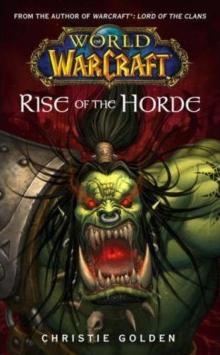 Rise of the Horde
Rise of the Horde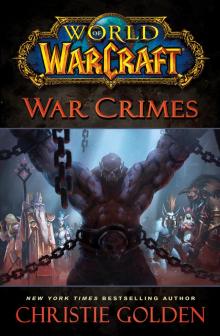 World of Warcraft: War Crimes
World of Warcraft: War Crimes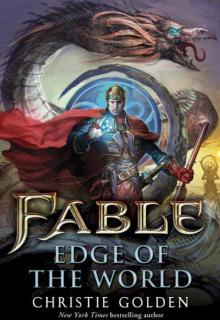 Fable: Edge of the World
Fable: Edge of the World Homecoming
Homecoming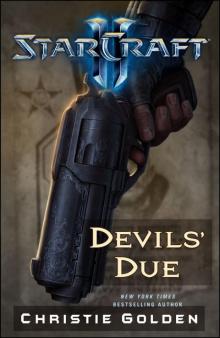 StarCraft II: Devil's Due
StarCraft II: Devil's Due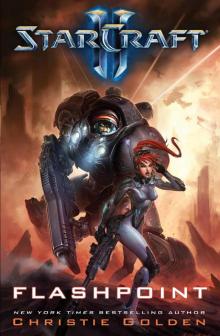 Starcraft II: Flashpoint
Starcraft II: Flashpoint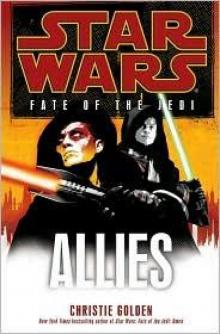 Allies
Allies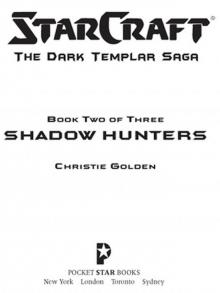 Shadow Hunters
Shadow Hunters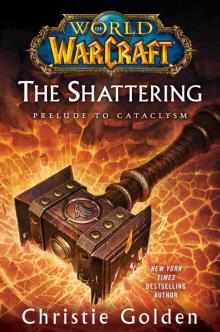 The Shattering: Prelude to Cataclysm wowct-1
The Shattering: Prelude to Cataclysm wowct-1 STAR TREK: VOY - Homecoming, Book Two - The Farther Shore
STAR TREK: VOY - Homecoming, Book Two - The Farther Shore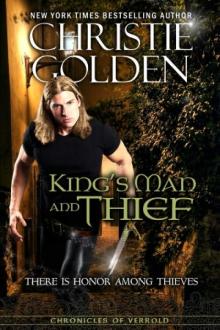 King's Man and Thief
King's Man and Thief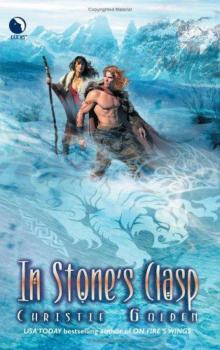 In Stone's Clasp
In Stone's Clasp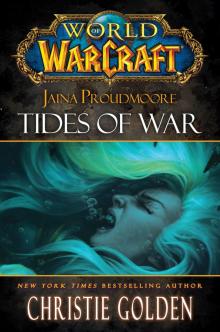 Jaina Proudmoore: Tides of War
Jaina Proudmoore: Tides of War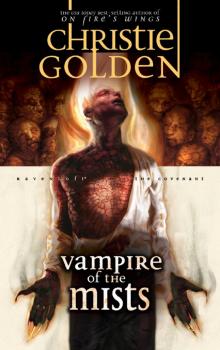 Vampire of the Mists
Vampire of the Mists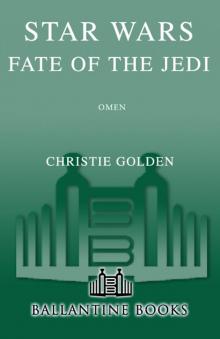 Star Wars: Fate of the Jedi II: Omen
Star Wars: Fate of the Jedi II: Omen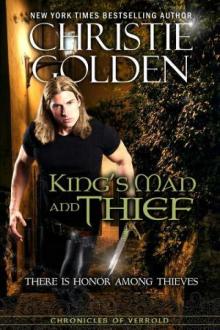 King's man and thief cov-2
King's man and thief cov-2 Star Trek
Star Trek StarCraft: Dark Templar: Twilight
StarCraft: Dark Templar: Twilight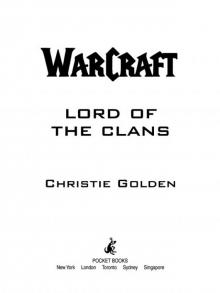 Lord Of The Clans
Lord Of The Clans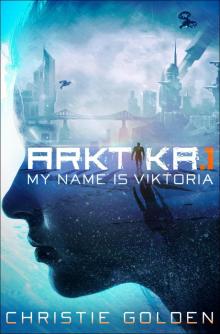 ARKTIKA.1 (Short Story)
ARKTIKA.1 (Short Story)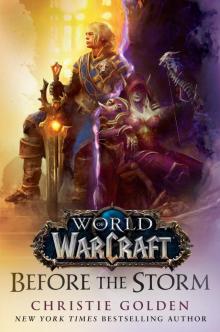 Before the Storm
Before the Storm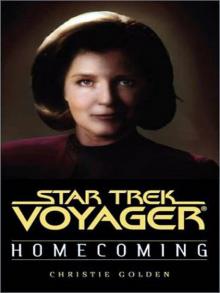 STAR TREK: VOY - Homecoming, Book One
STAR TREK: VOY - Homecoming, Book One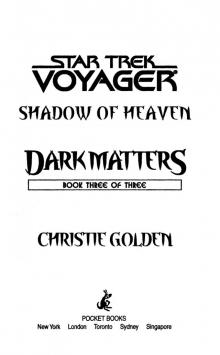 Shadow of Heaven
Shadow of Heaven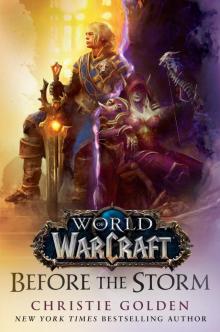 Before the Storm (World of Warcraft)
Before the Storm (World of Warcraft) Warcraft Official Movie Novelization
Warcraft Official Movie Novelization Flashpoint
Flashpoint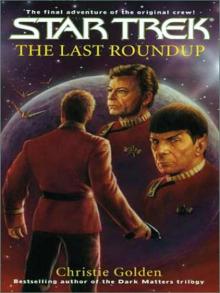 STAR TREK: The Original Series - The Last Roundup
STAR TREK: The Original Series - The Last Roundup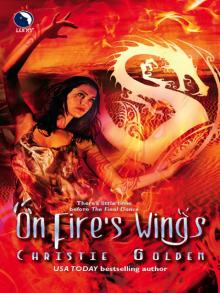 On Fire’s Wings
On Fire’s Wings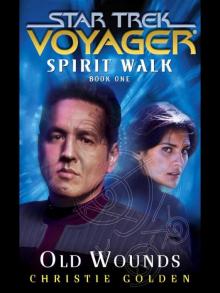 Spirit Walk, Book One
Spirit Walk, Book One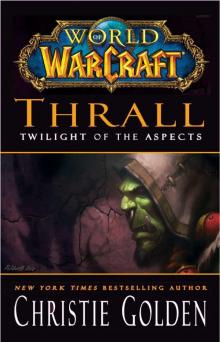 Thrall Twilight of the Aspects
Thrall Twilight of the Aspects Valerian and the City of a Thousand Planets
Valerian and the City of a Thousand Planets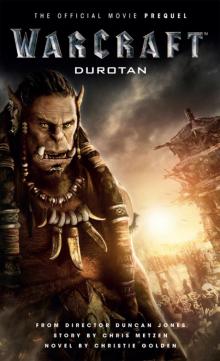 Warcraft
Warcraft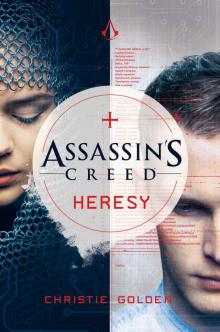 Assassin's Creed: Heresy
Assassin's Creed: Heresy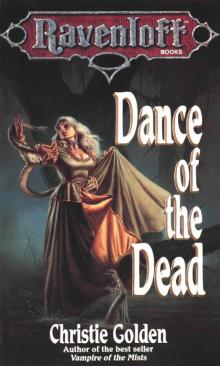 Dance of the Dead
Dance of the Dead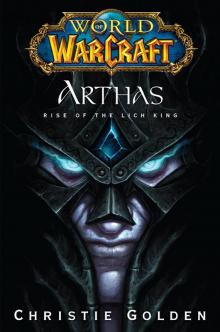 Arthas: Rise of the Lich King wow-6
Arthas: Rise of the Lich King wow-6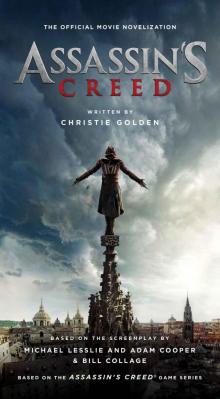 Assassin's Creed: The Official Movie Novelization
Assassin's Creed: The Official Movie Novelization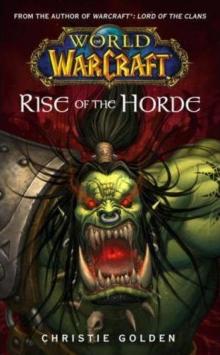 Rise of the Horde wow-2
Rise of the Horde wow-2 Dark Disciple
Dark Disciple Ghost Dance
Ghost Dance The Shattering
The Shattering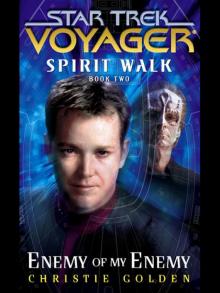 Spirit Walk, Book Two
Spirit Walk, Book Two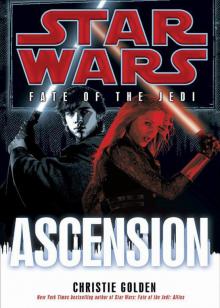 Star Wars: Fate of the Jedi: Ascension
Star Wars: Fate of the Jedi: Ascension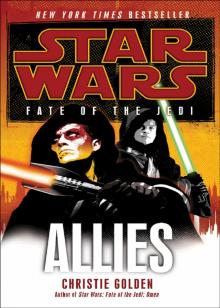 Star Wars: Fate of the Jedi V: Allies
Star Wars: Fate of the Jedi V: Allies The Enemy Within
The Enemy Within Kindred Spirits
Kindred Spirits The Farther Shore
The Farther Shore Star Trek: Hard Crash (Star Trek: Starfleet Corps of Engineers Book 3)
Star Trek: Hard Crash (Star Trek: Starfleet Corps of Engineers Book 3) Twilight
Twilight